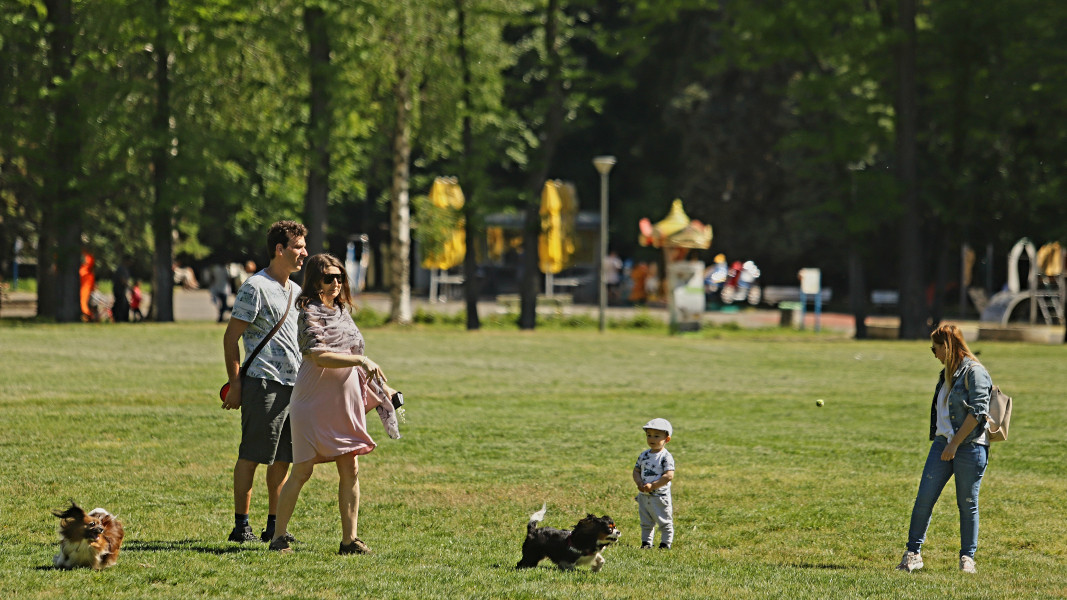The population of Bulgaria has declined by around one and a half million in the past 10 years, indicate National Statistical Institute data from the latest census of the population conducted at the end of 2021. If current death rate, birth rate and emigration tendencies keep, by 2030, the population of the country is expected to be under 6.5 million, experts say.
“Bulgaria is shrinking,” said, for Radio Bulgaria, sociologist Dimitar Ganev from Trend sociological agency. “A recent survey by our agency shows that for almost 91% of Bulgarians incomes are an extremely serious problem. This is probably one of the main causes of the brain drain and emigration from Bulgaria,” Dimitar Ganev says and adds:
“Going back many years, all surveys through the years have invariably pointed to incomes as problem number one for the country. Second comes the healthcare system, but 3rd, 4th and 5th are issues connected, one way or another, with the demographic crisis like birth rate, emigration etc. What strikes me is that so many of the respondents say they support measures connected with tax relief for young people. Support for child benefits in particular is over 80%.”

According to Dimitar Ganev, a priority for any Bulgarian government are the voters or “the people born and living here, a social group that is big enough to support them at the next election.” Unfortunately, the state policies targeted specifically at support for families with children get shelved. But not all measures addressing the demographic crisis are necessarily connected with the allocation of funding from the budget, some are connected with legislative amendments:
“One of the key initiatives is to attract people from abroad, or the so-called Bulgarian diaspora, not only from Western Europe, but also from North Macedonia, Moldova, Ukraine, i.e. all places where there are ethnic Bulgarians. And it is not just a question of money, it is a question of competent state policies that will put through changes to the laws that will make it easier for these Bulgarians, and for foreigners, to come and work in Bulgaria. But what is disappointing is that I don’t see anything being done to this end. Do you know just how difficult the procedure is for a Bessarabian Bulgarian, for instance from Moldova or from Ukraine, to come and work here? It is a veritable odyssey of red tape! Who needs that? Meanwhile, Bulgaria and Bulgarian businesses face an acute shortage of staff,” Dimitar Ganev explains.

A deep sense of pessimism about the future of the country is rife in Bulgaria, and quite a few of the motives for it are connected with the demographic crisis, Dimitar Ganev says.
“In this sense I believe that the demographic crisis is part of the reasons for this deeply ingrained pessimism in the country. Because, you know, if you see more and more young people being born, entering the labour market, more and more new things being created, then this pessimism probably wouldn’t be so poignant. On its part, this pessimism is also affecting the demographic processes in the country. This puts us in a spiral, and that is definitely not good news,” Dimitar Ganev says in conclusion.
Photos: BGNES
There are 120,000 deaf people in Bulgaria, according to unofficial data. Many of them do not want to learn sign language, although it is useful to them. There is no translation in schools for deaf children... All these are objective facts that become a..
The coffin containing the remains of Tsar Ferdinand I (born 1861 - died 1948) has been placed in the central foyer of the Vrana Royal Palace in Sofia for viewing. They will then be transferred to the family crypt in the palace. They were flown to..
Hikers who got lost in the Balkan Mountains near Kotel were found in a rescue operation. The incident was reported to the emergency number 112 at 19:49 yesterday. The tourists said they did not know their exact location and had only one mobile..
The 10 th edition of the National Lavender Festival is taking place 14-15 June in Sredno Gradishte village near Chirpan , where some of the oldest..
The National Show of the Ile-de-France sheep breed was held on 14 and 15 June in Sliven. The event was opened by the Deputy Minister of Agriculture Deyan..
A national "March for the Family" will be held today in three cities of the country - Sofia, Plovdiv and Varna. In the capital, the event will..

+359 2 9336 661
